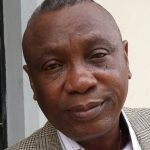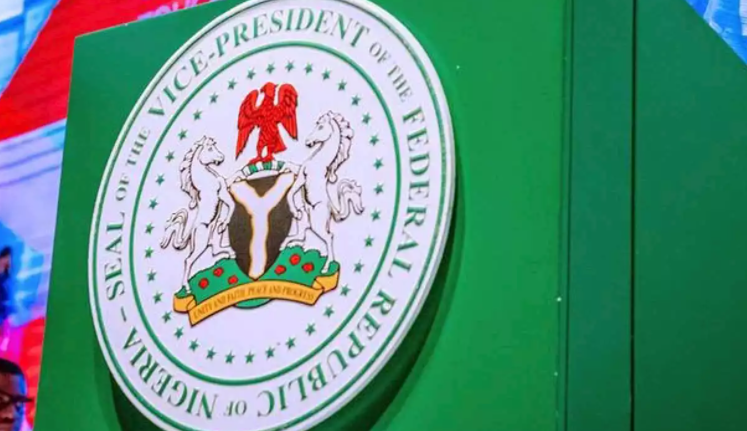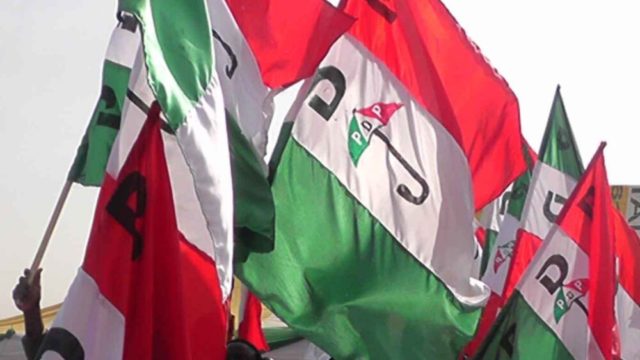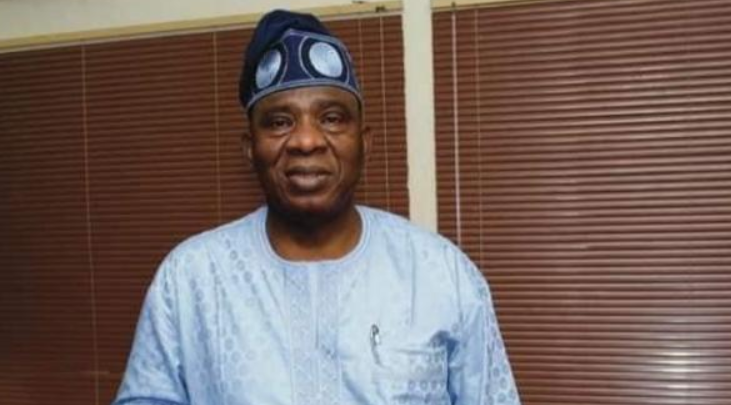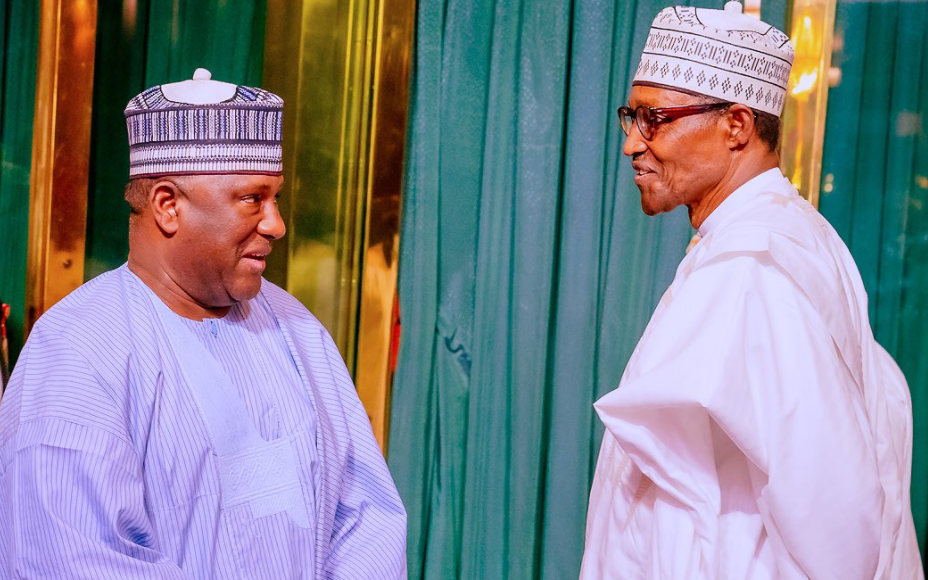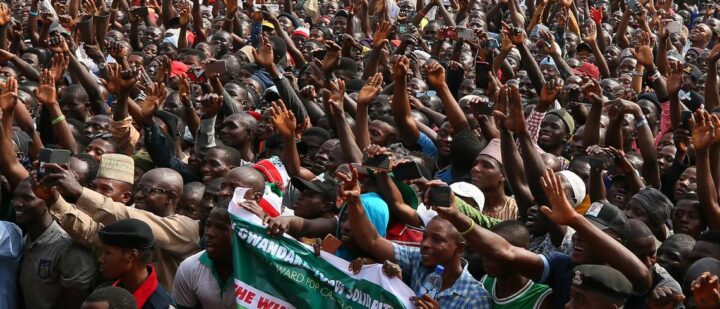Mistrust is always inherent in the relationship between the president and the vice president. Even if they deny it, it is constantly there. The office of the vice president is generally considered to be the graveyard of political careers. It is a lonely office. It is also a miserable office. The name vice means “in place of”. It typically serves as a pro-tempore (Latin) for the time being to the president. Former US vice president, Walter Mondale, says “since the start of our nation, the vice presidency has been an awkward office, its occupants have, by and large, been notoriously unhappy”.
In Nigeria, the office of the vice president is a solitary office, so desolate that it has an unelected official — the chief of staff to the president around, who is not recognized by the constitution and who the president directed must be the safest and best gateway to his office. The directive which is abnormal and atypical has not been abrogated in spite of the demise of the former holder of the office. That directive makes the office of the vice president to be extremely intricate and complex. Vice presidents suffer and endure in silence. In some cases, they are targets of attacks, ridicule and fake news. The worst thing is that there is little they can do about it. Getting out of sight is a solution most favoured by presidents, hence, most often the job schedule of vice presidents is to attend funerals, birthdays, anniversaries, lectures, seminars, retreats, etc. They do not really belong to the inner caucus of the president. If anything goes wrong they are always suspects.
In 1979, the most powerful person in the country then, apart from President Usman Aliyu Shehu Shagari was not his vice president, Dr Alexander Ifeanyichukwu Ekwueme but the then minister of transport, Alhaji Umaru Abdurahman Dikko. The excuse for this then was that the ruling National Party of Nigeria (NPN) did not win in Anambra state, the home state of Dr Ekwueme or in Imo state. In the 1979 elections, Dr Nnamdi Benjamin Azikiwe of the NPP still controlled his empire of Imo and Anambra states. If you wanted anything in Shagari’s era, you need to contact Dikko, who was also the chairman of the presidential task force on rice. The argument then was that Ekwueme had no electoral asset or political base in 1979.
That argument was demolished in 1999 in that President Olusegun Obasanjo was not voted by the people of his own region, the southwest region. The man the people of the southwest voted for in 1999, Chief Samuel Oluyemi Falae from Oyemekun land in Ondo state, by irony, was himself a recipient of Obasanjo’s generosity when he made him permanent secretary in 1977 and also introduced him to General Ibrahim Babangida who made him secretary to the government of the federation in 1985. Perhaps the weakness of the office of the vice president in Nigeria since 1999 could be traced to the effect that there has not been a mutual relationship between the president and the vice president before they were appointed vice president. The process for selecting a vice president in this country since 1999 is faulty.
Advertisement
For example, Alhaji Atiku Abubakar was the PDP candidate for the January 9 gubernatorial election in Adamawa state in 1999. He was not close to President Obasanjo who was the presidential nominee of the PDP at that time. His financial purse and a little help from some of his friends including Otunba Oyewole Fasawe, Chief Tony Anenih prevailed on Chief Olusegun Obasanjo to make Atiku Abubakar the vice-presidential candidate for the PDP, over Alhaji Adamu Ciroma, Alhaji Abubakar Rimi and Professor Jerry Gana after the PDP convention held in Jos on February 16, 1999.
Atiku’s running mate at that time as deputy governor Boni Haruna later became governor by defeating Bala Takaya by 329,595 to 283,863 votes in the 1999 Adamawa state gubernatorial election. In the December 16, 2006, convention held in Abuja, it was President Obasanjo who forced Dr Goodluck Jonathan, then governor of Bayelsa state on President Umaru Musa Yar’adua to be his running mate. Alhaji Umaru Yar’adua preferred either Dr Peter Odili or Chief James Onanafe Ibori. President Goodluck Ebele Jonathan picked Alhaji Namadi Sambo, the former governor of Kaduna state, to be his vice president on May 19, 2010, following pressure from the governor’s forum, who wanted their own to be vice president. President Muhammadu Buhari picked Professor Yemi Osinbajo in very interesting circumstances. The rejection of the Muslim/Muslim was floated in 2014 because certain elements within the APC at that time never wanted Chief Bola Tinubu to be vice president. In fairness, President Muhammadu Buhari fulfilled his obligation to Chief Bola Tinubu at that time.
On December 11, 2014, President Muhammadu Buhari defeated his political rivals in the APC with 3,430 votes, Dr Rabiu Kwankaso had 974 votes, Alhaji Atiku Abubakar 954 votes, Governor Rochas Okorocha-624 votes with Dr Kayode Fayemi as the returning officer at the Teslim Balogun stadium in Lagos at the party’s convention. In order to calm nerves down, General Buhari left the decision to pick the vice president in the hands of Chief Bola Tinubu. He could have picked Chief Pius Olu Akinyelure, a former Mobil chief executive, who is a Methodist Knight. He could as well have picked Chief Olusegun Osoba, the twice-elected governor of Ogun state. He could have dared his critics as well and picked Chief Bisi Akande, a Muslim and a former governor of Osun state and Ogbeni Rauf Adesoji Aregbesola, former governor of Osun state, now minister of interior affairs and the course of history would have changed by now.
Advertisement
A few days later Tinubu picked Professor Yemi Osinbajo. Osinbajo, a Victoria Garden City (VGC), Lagos resident and a pastor with the Redeemed Christian Church of God had earlier served as the commissioner of justice during the tenure of Bola Tinubu as the governor of Lagos state. It was the costliest decision made by Tinubu, a human developer, in his political career. The question now is what has he gained from that decision. Finally on December 17, 2014, in Abuja, Buhari announced Osinbajo as his running mate. Till today, I am still at a loss as to why Buhari did not name Chibuike Rotimi Amaechi as his running mate. These decisions by President Buhari and Tinubu are still causing serious katakata in APC today.
Either vice presidents have a political base or structure, the office is a futile job, full of frustrations. The vice presidency is like the human appendix, a vestigial organ on the body politic. It is difficult for a president to take the vice president completely into his confidence. The president by necessity builds his own staff and makes his own decision and the vice president remains an outsider. Even at present, the incumbent vice president, Yemi Osinbajo, cannot be claimed to belong to the so-called cabal, the inner caucus ruling the country, made mostly of CPC members who have become stupendously rich in the last six years and this has drawn jealousy of other APC members. After all, the ruling APC government was founded by members drawn from DPP, APGA, CPC, ACN, ANPP and disgruntled PDP members.
For example, most ministers if not all, owe their loyalty to the president for appointing them and not to the vice president. Even the present vice president could not nominate a minister from his own state of Ogun. That privilege was given to Governor Ibikunle Amosun, who first nominated Kemi Adeosun six years ago. The same Ibikunle Amosun who is now a senator further nominated Olamilekan Adegbite, who served under him as commissioner for works, as minister for mines and steel development two years ago.
In any presidential contest, no one competes to be vice president. It is when they lose out that they are compensated to be vice president. In reality, the vice presidency is a consolation prize that diminishes the office. Since 1999, when we started this democratic experience, we have had only two former vice presidents who have not become president yet. They are Alhaji Abubakar Atiku and Alhaji Namadi Sambo. The third, Goodluck Ebele Jonathan eventually became president on May 5, 2010, following the demise of President Umaru Musa Yar’adua. He too was later elected president in his own right. None of these former vice presidents has written memoirs to let us know their experiences while serving as vice president.
In 1999, it was a smooth take-off for President Olusegun Obasanjo and Vice President Atiku Abubakar. No major storm was experienced in their first term in office. In his wisdom, Obasanjo equipped Atiku with loaded schedules. He first made him the chairman of the National Boundary Commission and posted an experienced civil servant, Alhaji D. Bobbo as his permanent secretary. Obasanjo later constituted the National Council For Privatisation and the Bureau of Public Enterprises (BPE). He made Atiku Abubakar the chairman of the council. Other members of the council at that time were the minister of finance, Adamu Ciroma(vice-chairman), the secretary to the government of the federation, Ufot Ekatte; minister of justice and attorney general of the federation, Ajibola James Ige; the governor of the central bank, Joseph Oladele Sanusi from Ogbagi in Akoko, Ondo state; the minister of industry, Kolawole Babalola Jamodu; the chief economic adviser and vice-chairman, National Planning Commission, Phillip Chukwuedo Asiodu; the director-general of the Bureau of Public Enterprises, Nasir Ahmad El-Rufai; and four others who were appointed from time to time by President Obasanjo.
Advertisement
It was the council that formulated policies and approved the privatisation programmes of the central government. The office of the vice president then was equipped with experienced public officers with the likes of Prince Sola Akanmode, Abdullahi Nyako, Chris Mamah, Abdu Yari Lafiya (DSP), Mahmoud Abdullahi, Sajo Mohammed, Professor Boris Aborisade, Dr Usman Bugaje, Dr Hamilton Isu, Tokunbo Adeola, Umar Ardo, Ajuji Ahmed, John Agwu, A.A. Achibong, A. Maigari, O.O. Oyelakin, M.F. Aiyegbusi, Alhaji Ibrahim Abdullahi, G.A. Sobajo, Alhaji I.G. Kura, Dr A. Ndukwe, Butrous Pembi, and A. Braimoh.
President Obasanjo also directed the then secretary to the government of the federation, Ufot Ekaette, to assign the following portfolios to the office of the vice president. They are general services and administration, state and local government affairs, Code of Conduct Bureau, National Institute For Policy and Strategic Studies (NIPSS), National Population Commission, Public Complaints Commission and National Planning Commission. Unlike what is playing out now, Atiku Abubakar had the privilege and power to nominate ministers, ambassadors, special advisers and other officials from Adamawa state. So close were President Obasanjo and Atiku that Villa Scope, the official news magazine of the statehouse coordinated by Tunji Oseni, Chris Mammah, Tunde Olusunle, Steve Itugbu, Musa Aduwak, Justin Abuah, Sule Katsina and Lanre Idowu, described the bond between the two men as a strong relationship that works.
In the second term, things fell apart. Only the two men can explain what really happened. I still believe to date, that if Chief Mrs Stella Abebe Obasanjo (1945-2005) had not died in Puerto Banus in Spain on October 23, 2005, and if Otunba Oyewole Fasawe, the Asiwaju of Owo, who was and is still a close friend of the two men was not incarcerated at that time, the relationship between President Obasanjo and Atiku Abubakar could not have degenerated so low, during the second term of President Obasanjo in office.
It is wrong to pretend that the rift between former President Obasanjo and Atiku Abubakar did not affect the smooth running of the government between 2003 and 2007. Of course, it did. Careers of many public officers were ruined by the crack. Most did not recover till today. Some were heartbroken, some even died. It was a difficult period for those close to the two of them. There was the case of Yemi Ogunbiyi, former managing director of THE DAILY TIMES and a literature guru and friend of the two men. Unaware of the rift, he flew from Lagos and by mistake first visited Atiku Abubakar. He was disallowed from seeing President Obasanjo in spite of his scheduled appointment. The complete loyalty of the secretary of the government of the federation, Ufot Ekaette and that of the chief of staff to the president, Major General Abdullahi Mohammed, saved the central government in spite of the numerous travels of President Obasanjo at that time. The carryover of the split has affected President Obasanjo, Atiku Abubakar and the rest of us till today.
Advertisement
I do not know what the incumbent vice president, Yemi Osinbajo, is going through. But talking generally of the office, it is a dead-end job. I was in Ikenne, the hometown of Osinbajo in Ogun state recently and I watched regularly the projects sited in Daura on television, the home town of President Buhari, there is a lot of difference. The power of the presidency has transformed Daura while there has not been a change in Ikenne in the last six years. Ikenne is not just the hometown of the legendary Chief Obafemi Awolowo, it is also the headquarters of Ikenne local government in Ogun state.
For example in the last six years, the following have been established in Daura: The Federal Polytechnic Daura, Airforce Reference Hospital, Daura, Women and Children Hospital, Daura, University of Transportation, Daura, Kano-Maradi rail line will pass through Daura, School for People with Special Needs, Daura, Nigeria Airforce Response Air Wing, Daura, Nigeria Army 171 Battalion Base, Daura and the Forwarding Operating Base, Daura, National Directorate of Employment Centre, Ganga, Daura, Upgrade and Expansion of Daura Mini-Stadium, Sustainable Development Goals Skills Acquisition Centre, Zango Road, Daura, Completion of the Sabke Dam, Daura supplies 1m litres od water to Daura and neighbouring communities, Several SDG School Projects in Daura, 73km 132KVA line from Katsina to Daura and two 30 and 40 MVA transformers to boost power supply, Dualization of the 72km Katsina-Daura road, 50 bed maternity Centre at the Daura General Hospital built under the name of the First Lady, Sir Emeka Offor E-Library, Daura, 400,000 litres capacity solar powered water system by NNPC and Belema oil in a joint venture with Jack-Rich Tein Foundation, NDE Cosmetology training and distribution of Cosmetology packs to 1000 women in Daura, 330KV /132KV power substation, Daura, among others.
Advertisement
The 1979 constitution never gave the vice president any defined schedule nor the decree No 24 of May 5 1999, which we now know as the 1999 constitution. The only responsibility the vice president has is in the third schedule of the constitution which makes him the chairman of the National Economic Council. In that capacity, the council itself is to “advise the president”. In all other bodies, the constitution bestowed on him ordinary membership or in some cases vice-chairman. He is not a member of the Nigeria Police Council while he is the vice-chairman of the Council of State, National Defence Council and National Security Council. Section 130 of the constitution states that there shall be for the federation, a president who shall be the head of state, chief executive of the federation and commander-in-chief of the Armed Forces of the Federation.
Section 141 states that there shall be for the federation a vice president. The constitution never crowned the vice president as deputy head of state or deputy chief executive of the federation or deputy commander-in-chief of the Armed Forces of the Federation. The constitution is ill to the office of the vice president yet it coronated the president a king and a god. However cordial they appear to the outside world, there cannot but be a conflict between the office of the president and that of the vice president. It is true that Decree Number 25 of 1978 which is referred to as the 1979 constitution was produced by Justice Egbert Udo Udoma from Ikot Abasi in Akwa Ibom state. It is also true that Decree Number 24 of 1999 which we refer to as the 1999 constitution was produced by Nikki Tobi (1940-2016). The 1979 constitution was in fact signed into law by General Olusegun Obasanjo on September 21, 1978, as the constitution of the Federal Republic of Nigeria (enactment decree) of 1978. As for Decree Number 24 which we refer to now as the 1999 constitution, it was promulgated and signed into law on May 4, 1999 by General Abdusalam Alhaji Abubakar, GCFR.
Advertisement
One could see that the two constitutions were engineered and approved by the military. In the structure of the military command, there is no provision for a deputy. In a military context, the chain of command is the line of authority and responsibility along which orders are passed within a military unit and between different units. In more simple terms, the chain of command is the succession of leaders through which command is exercised and executed. And that is why the military transferred all the powers in this country to the Office of the President of Nigeria, who was also named the commander-in-chief of the armed forces. The two constitutions—1979 and 1999, were not approved by referendum or a plebiscite, unlike in most countries of the world.
The fate of the vice presidents is equally similar to the fate of deputy governors. Of all the thirty-six deputy governors elected in 1999, only four of them became governors eventually. They are Dr Goodluck Jonathan from Bayelsa state, who became governor and later became president, Aliyu Mahmud Shinkafi from Zamfara state, Umar Abdullahi Ganduje from Kano state and Aliyu Mugatakarda Wamako from Sokoto state, who is at present a senator. There are others who later became senators including Otunba Iyiola Ajani Omisore from Osun state, Chris Stephen Obong Ekpeyong from Akwa Ibom, Enyinnaya Abaribe from Abia state, Seleh Usman Dambayi from Taraba and Sefiu Adegbenga Kaka from Ogun state.
Advertisement
The rest are today not around politically while some of them have died. They include Bello Tukur (Adamawa), Prince Chinedu Emeka (Anambra), Alhaji A. Mahmoud (Bauchi), O. Ajene (Benue), Alhaji Al A. Jato (Borno), Chief John O. Akpa (Cross Rivers), E. Oko-Isu (Ebonyi), Chief Paul O. Alabi (Ekiti), O. Itanyi (Enugu), Barrister Joshua M. Lidani (Gombe), Engr. Udeagu (Imo), Ibrahim S. Kwatalo(Jigawa), Engr. Stephen R. Shekari (Kaduna), Alhaji T.A. Jikamsi (Katsina), Alhaji A.A. Argungu (Kebbi), Patrick Adaba (Kogi), Deacon (Chief), S.A. Sayami(Kwara), Senator K. Bucknor(Lagos), Onje Gye-Wado (Nassarawa), Barrister Afolabi Iyantan (Ondo), Barrister Iyiola Oladokun (Oyo), Chief Michael Bot-Mbang (Plateau), Sir G.G. Toby (Rivers) and Alhaji A.S. Bagare (Yobe). The one elected in Edo state, Mike Aiyegbemi Oghiadomhe, later became chief of staff to his friend, President Goodluck Jonathan. How many of them do we hear of these days? Look at most of them where they are now.
No vice president can survive the systematic demoralisation inflicted by the office without serious injury to themselves. The vice presidency is a man eater. The office destroys individuals however competent you could be. The job is a silent killer. Most often vice presidents get to know about activities of government, not through briefings, memos and files. Between the president and vice president, trust, reliance, steadfastness, loyalty, devotion, and fidelity are the key words in their wedlock and I doubt if the two can pass the acid tests. There is always scepticism and dubiety in their marriage. Constant doubt. Their aides too do not help matters.
In 1979, Kingsley Ozumba Mbadiwe, who wanted to be vice president, described the post of vice president as a “repeater station of a major network”, while others described it as “the spare tyre on the automobile of government”. No president in the nature of things is going to yield power to a vice president. Although they were both elected, the vice president is just a part of a package. A sort of an appendage to the presidency. The only reason for keeping the office of vice president is that it provides an automatic solution to the problem of succession.
Former US President Roosevelt concluded that the vice president was “an utterly anomalous office, one which I think ought to be abolished”. To me the office is incurable frustration. It is not only in this country that it applies. No president and vice president have fully trusted each other. Antagonism, envy, suspicion, jealousy, are inherent in their relationship. “The only business of the vice president,” wrote Thomas Marshall who served for eight years under US President Woodrow. Wilson “is to ring the White House bell every morning and ask what is the state of health of the president”. Lyndon B Johnson who served as vice president under John Kennedy before he became president eventually, said the office of the vice president “is like a raven, hovering around the head of the president, reminding him of his mortality”.
In the United States, Bobby Baker, the wheeler-dealer who fell from grace later, remembers Johnson telling him one night: “Bobby, you never had a heart attack. Every night I go to bed, and I never know if I’m going to wake up alive the next morning. I’m just not physically capable of running the presidency”. Former US vice president, Hubert Humphrey, said “there is an old story about the mother who had two sons. One went to sea, and the other became vice president, and neither was ever heard of again”.
France has abolished the post of vice president completely and yet the French democracy is one of the strongest in Europe. On April 2, 1974, French president Georges Pampidou died in office. On May 5, the French had their election followed by a run-off on May 19 and the inauguration of Valery Giscard D’estaing on May 27. In short in less than 60 days, France had a new president, freely chosen by the people and equipped by them with a fresh mandate. The results, as told, surely favour France on essential tests of legitimacy and democracy.
Egypt has no vice president. Other countries, in fact too numerous to mention, have no vice presidents. In America, where we borrowed most of our constitutional provisions, the constitution of America does say that the vice president “shall be president of the senate, but shall have no vote, unless they be equally divided”.
When there was an objection to this provision in America’s constitutional convention, Roger Sherman observed that if the US vice president did not preside over the senate “he would be without employment”. The vice president is always in a no-win situation. If he talks, he will be accused of being garrulous and loquacious. If he refuses to talk, he will be labeled dumb and laconic. If he works hard, he will be charged of “being too eager” to be president, if he refuses to work, he will be ridiculed for being, indolent, lazy, lacking initiative and lethargic.
In the book ‘The Imperial Presidency’ by Arthur M. Schlesinger Jr., Tom Marshall was quoted as saying “the vice president is like a man in cataleptic state: he cannot speak, he cannot move; he suffers no pain and yet he is perfectly conscious of everything on about him”. Also in the book Hubert Humphrey who was vice president to Lyndon Johnson described the vice presidency in bad terms, “it’s like being naked in the middle of a blizzard with no one to even offer you a match to keep you warm. You are trapped, vulnerable, alone and it does not matter who happens to be president”.
To non-politicians, the presidential election in 2023 is too far but to politicians, it is tomorrow. The scheming for that election is on already. So what do we make of our own vice president?
The first thing to do is to reform the way vice presidents are chosen. Since 1999, vice presidents in Nigeria have been imposed on politics or by hasty compromise of exhausted factional leaders. The selection process must be more open. The party structure must be more involved so that the vice presidential nominee could be more screened by the party leaders. Vice presidents must be given scheduled responsibilities by the constitution same as deputy governors.
The way we choose our vice presidents has become so absurd. In the absence of a constitutional amendment, the best hope for improvement of the vice president’s job seems to rest in improving the selection process. The presence of top-flight persons as vice president would at least put some additional pressure on the president to involve the vice president in important governmental decision making and thus upgrade the existing role of the office. There is still hope, for the vice presidency.
Views expressed by contributors are strictly personal and not of TheCable.
Add a comment
